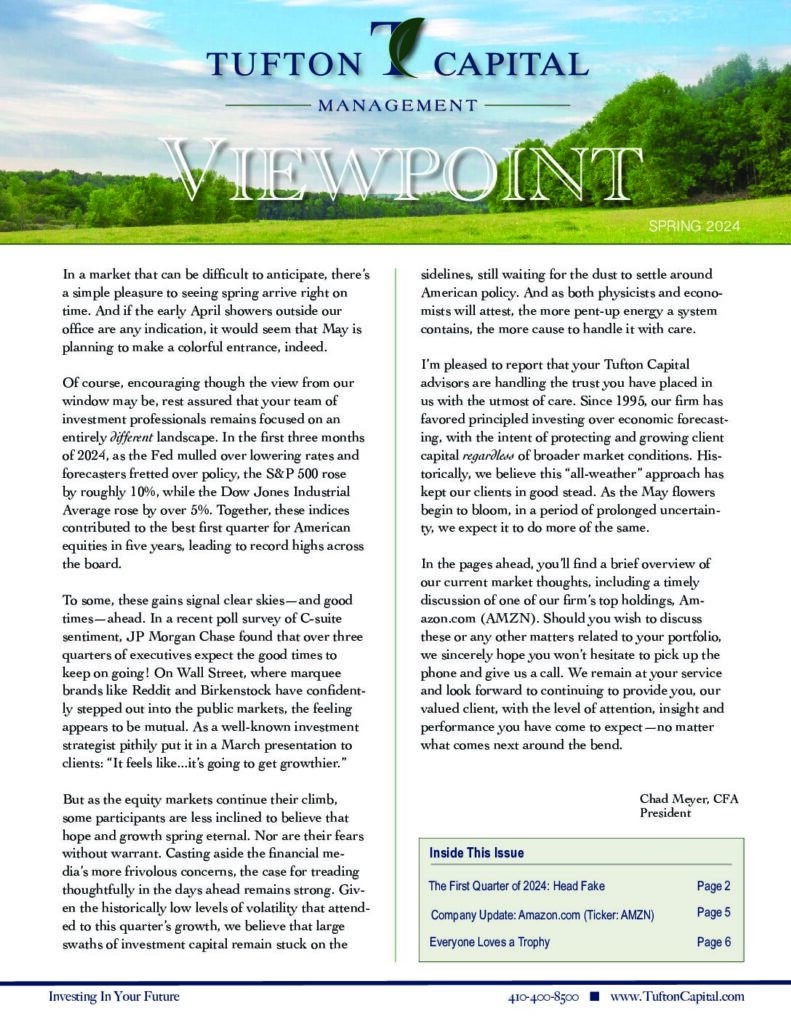Have You Heard About the New Fiduciary Rule?
by Neill Peck
In 2016, the Department of Labor finalized its rule expanding its definition of “investment advice fiduciary.” The new rule, which is applicable as of April 10th, is meant to force financial advisors and brokers to give advice that is in clients’ best interests – not their own.
Believe it or not, until now, anyone giving advice (like stockbrokers or insurance salespeople) only had to meet a “suitability standard.” This low bar meant that whatever option the advisor recommended only had to be a “reasonable” option for the client. In practice, this meant that the advisor could recommend a high-fee fund (with a nice kickback to the advisor, of course) instead of a low-fee fund. The scale of the problem is significant: The White House Council of Economic Advisors estimates that these conflicts of interest lead to $17 billion in lost retirement savings every year.
The new rule greatly expands the circumstances that call for an advisor to meet a fiduciary standard. The concept of “fiduciary” has a specific legal definition that a given advisor can’t get around, and it is the highest standard of care. There is extensive case history in which courts have imposed separately-defined duties of Care, Loyalty, Good Faith, Confidentiality, Prudence, and Disclosure upon fiduciaries1. A client whose advisor meets a fiduciary standard knows that they are in good hands. The new rule can’t eliminate all bad investment advice, of course. Advisors can be careful, loyal, and honest and still be wrong. And there are still some small holes by which bad advice can be disseminated. But overall, this is definitely a step in the right direction for the industry.
The new rule might seem like a no-brainer, but it has been met with criticism from some parts of the financial industry. Predictably, the critics of the rule are those who benefit financially from the ability to receive kickbacks from 12b-1 and other fees from fund management companies. Also, there are many in the insurance business who push expensive annuity products that pay high commissions but aren’t necessarily in their clients’ best interests. To be frank, a good number of people saving for retirement have been paying too much for bad advice.
On the other side of this rule are Registered Investment Advisors (RIAs), who have always acted as legal fiduciaries. Tufton Capital falls into this category. As an RIA, our firm is not affected by the rule change. Our structure by its very nature puts our clients’ interests ahead of our own. Unlike the salesmen in our business who parade as “financial advisors,” our firm has no motive to recommend one investment product over another – other than its suitability for the client. Nor do we gain any benefit from extra or excessive trading in our clients’ accounts. Here at Tufton, our primary focus and only incentive is to grow our clients’ assets by following our investment process.
Some expect that Donald Trump will undo the new D.O.L. rule. For our firm, though, it won’t matter: we always have and always will put the client first.
1 www.law.cornell.edu/wex/fiduciary_duty



